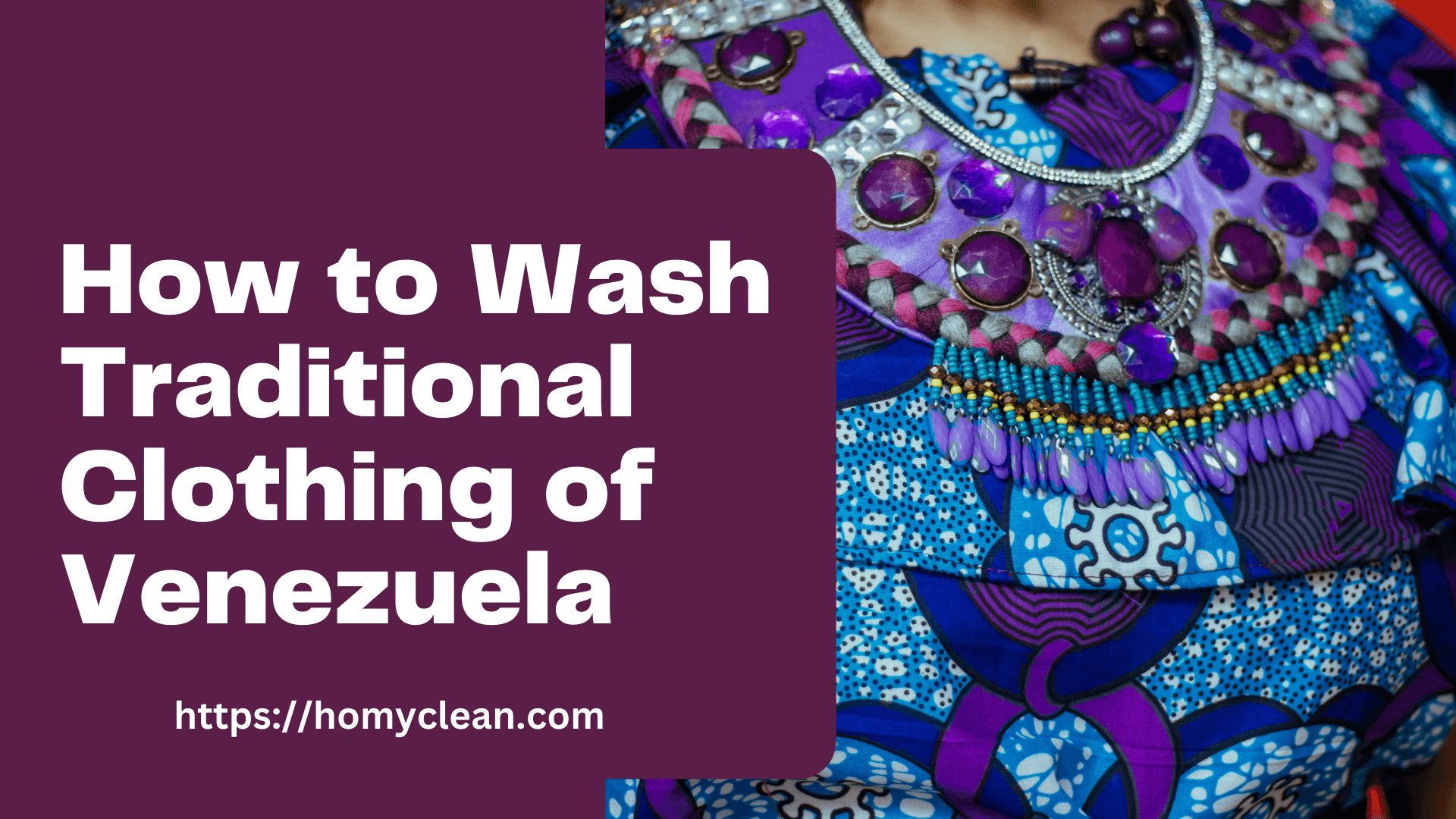Traditional Venezuelan clothing, known for its vibrant colors and unique designs, reflects the country’s rich cultural heritage and diversity. Whether it’s the colorful attire worn during festivals or the traditional dresses like the Liqui Liqui for men and the Pollera for women, preserving these garments is essential to honor and cherish Venezuelan traditions. In this article, we will guide you on how to traditional clothing of Venezuela to ensure they remain in excellent condition for generations to come.
How Many Types of Traditional Clothing of Venezuelan Fabrics
Before we proceed with washing, it’s crucial to understand the fabrics commonly used in traditional Venezuelan clothing. These garments often feature lightweight and breathable fabrics suitable for the country’s tropical climate.
1. Cotton
Cotton is a standard fabric used in traditional Venezuelan clothing because of its comfort and breathability. Handling cotton garments with care during washing is essential to prevent shrinking.
2. Linen
Linen is another popular choice for traditional Venezuelan attire, especially in men’s Liquid. Linen is a delicate fabric that requires gentle washing to maintain its texture.
3. Silk
I used silk in some traditional dresses like the Pollera. It’s a luxurious fabric that demands special attention during washing to avoid damage.
Read This Article: How to Wash Traditional Filipino Clothing
Step-by-Step Guide How to Wash Traditional Clothing of Venezuela
Let’s explore the step-by-step guide to washing traditional Venezuelan clothing:
1. Check the Care Label
Before washing any traditional garment, always check the care label for specific washing instructions. Follow the manufacturer’s recommendations to ensure proper care.
2. Spot Clean Stains
If your traditional Venezuelan clothing has stains, use a gentle stain remover or spot clean the affected area with mild detergent and water. Avoid using harsh chemicals that may damage the fabric.
3. Hand Wash for Delicate Fabrics
Hand washing is the safest method for delicate fabrics like linen and silk. Fill a basin or sink with lukewarm water and add a small amount of mild detergent. Gently submerge the garment and let it soak for a few minutes. Avoid excessive scrubbing or twisting.
4. Machine Wash with Caution
Use a gentle cycle with cold water for cotton garments that allow machine washing. Place the clothing inside out in a mesh laundry bag to protect the fabric and designs.
5. Use Mild Detergent
Opt for mild, pH-balanced detergents that are suitable for delicate fabrics. Avoid using bleach or strong detergents, which may cause fading or damage.
6. Rinse Carefully
After washing, rinse the garment thoroughly with cold water to remove any soap residue. Gently press the fabric between two clean towels to remove excess water.
7. Drying the Garment
Lay the garment flat on a clean, dry towel to dry traditional Venezuelan clothing. Gently roll the towel to absorb excess water. Avoid wringing the fabric, as it may cause wrinkles or stretching. Hang the clothing in a shaded area with good air circulation to air dry.
8. Ironing Tips
If ironing is required, set the iron to a low or medium setting based on the fabric type. Iron the garment inside out to preserve the colors and designs.
Conclusion
Traditional Venezuelan clothing represents the country’s rich culture and heritage. Following these washing tips ensures that your Liquid, pollera, or any other traditional attire remains well-preserved and cherished for many years.
FAQs
Can I use a washing machine for traditional silk dresses like the Pollera?
It’s best to avoid machine washing delicate silk garments. Hand washing is the safest method to preserve their texture and colors.
Should I use hot water to wash traditional cotton clothing?
No, always use cold water for washing cotton garments to prevent shrinking.
Can I use fabric softeners on linen clothing?
Fabric softeners may leave residues on linen and affect its texture. It’s best to avoid using them.
How often should I wash traditional Venezuelan clothing?
Washing frequency depends on how often you wear the clothing. If there are no visible stains or odors, you can wear them a few times before washing them.
Can I hang traditional clothing in direct sunlight to dry?
Direct sunlight may cause fading, especially for vibrant colors. Drying the garments in a shaded area with good air circulation is best.





